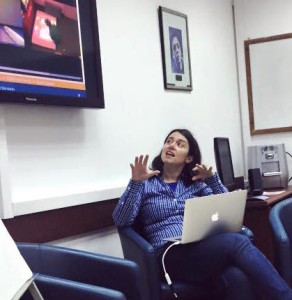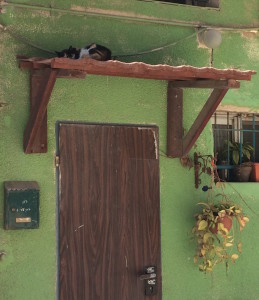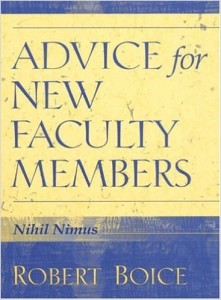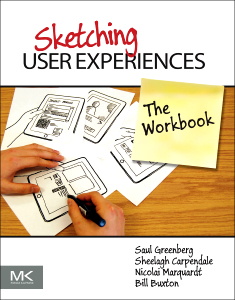As some of you may know, I spent all of July living in Tel Aviv, Israel (location chosen because Eugene’s company has a dev office there). A month has passed since I returned, the dust has settled, and I am ready to reflect a bit on the experience from both personal and professional perspectives. Overall, there were almost no drawbacks to taking this trip and I would recommend a month abroad to anybody in a similar position. I certainly am already contemplating options for next summer!

Chatting about my work at Tel Aviv University. Photo courtesy of my wonderful hostess, Shuli Gilutz.
There were some major research benefits to spending a month abroad. The obvious one, of course, is that I was able to give talks at international universities (in my case, Tel Aviv University and University of Haifa). The other benefits were more process-based. The trip was an easy way to temporarily put aside the minutia that get in the way of getting the big things done (meetings, continuing stream of email, random requests for my time, etc.). I think the 8-hour time difference was particularly helpful with managing email as I was actually able to check and answer email in one sitting instead of having it trickle in throughout the workday. Additionally, the time constraint of the month-long trip led me to plan explicitly which concrete goals I would accomplish: major revisions on a CSCW paper, re-write a journal paper, write and submit a Jacobs Foundation grant with a colleague, read Ways of Knowing in HCI, and take a course on Machine Learning to build some skills I need for a new project. To get those things done in a month, I knew that I would need a schedule that included daily writing and I would need to read one chapter and complete one course lecture set every workday. Finally, the time constraint introduced a great low-risk way for me to try out a new approach to work and really put it into practice. I was very productive in July and most of it was due to being able to change my focus by getting away for a bit.
The impact of my trip on advising was more of a mixed bag. In the summer, I was guiding two Ph.D. students and seven undergraduate students working in my lab in various capacities. Upon returning, I asked them to anonymously share about their view of my leave. While all the students thought I set clear expectations about being gone during July, four of them underestimated the impact of my trip and found themselves being less productive in their research. Students commented that my presence helped motivate them, get them through blocks, and get quicker feedback — this was harder to do while I was away. However, in terms of instrumental help, all but one students felt that they were still able to get through blocks: by getting help via email from me (5 students), by making a greater effort to solve the problem themselves (6 students), and by reaching out to lab mates for help (4 students). I see these as positives of the trip — my absence encouraged the students to be more independent and proactive in their research.

Seen across the street from a cafe where I did much of my writing. Note the napping cat on the roof.
From a personal perspective, the trip was refreshing and restful despite being productive. It was great to be living with Eugene again, instead of being long distance (as we have been for the past year and will be until May). It was great to be able to work in coffee shops, go to the beach in afternoons, explore the country together on weekends. I find that living somewhere for a month is a different (and better, I think) way of traveling than visiting for a few days. It is more relaxed and more immersive and helped me really get a sense of what everyday life is like in Tel Aviv. I came back feeling as if I had been on vacation, even though I was working full time while there.
That being said, I know that the trip was a luxury that not everybody can afford. I don’t teach in the summer. I chose to only take two months of summer salary so that nobody could really object to me being away. For Eugene and me, the logistics were fairly uncomplicated — we don’t have kids (and I was able to talk a friend into watching my cat). My bottom line is that this was incredibly useful for me and I would love to do something like this again next summer. Maybe this is something that others would consider valuable as well — some sort of a more formal junior faculty exchange program would be really cool!


